RSICs. SIC Codes. Fixed.
We’ve fixed SIC codes. RSICs (Real-Time SIC Codes) use AI to automatically correct, replace or add SIC codes for UK companies. They’re faster, more accurate, and remove the need for manual checks.
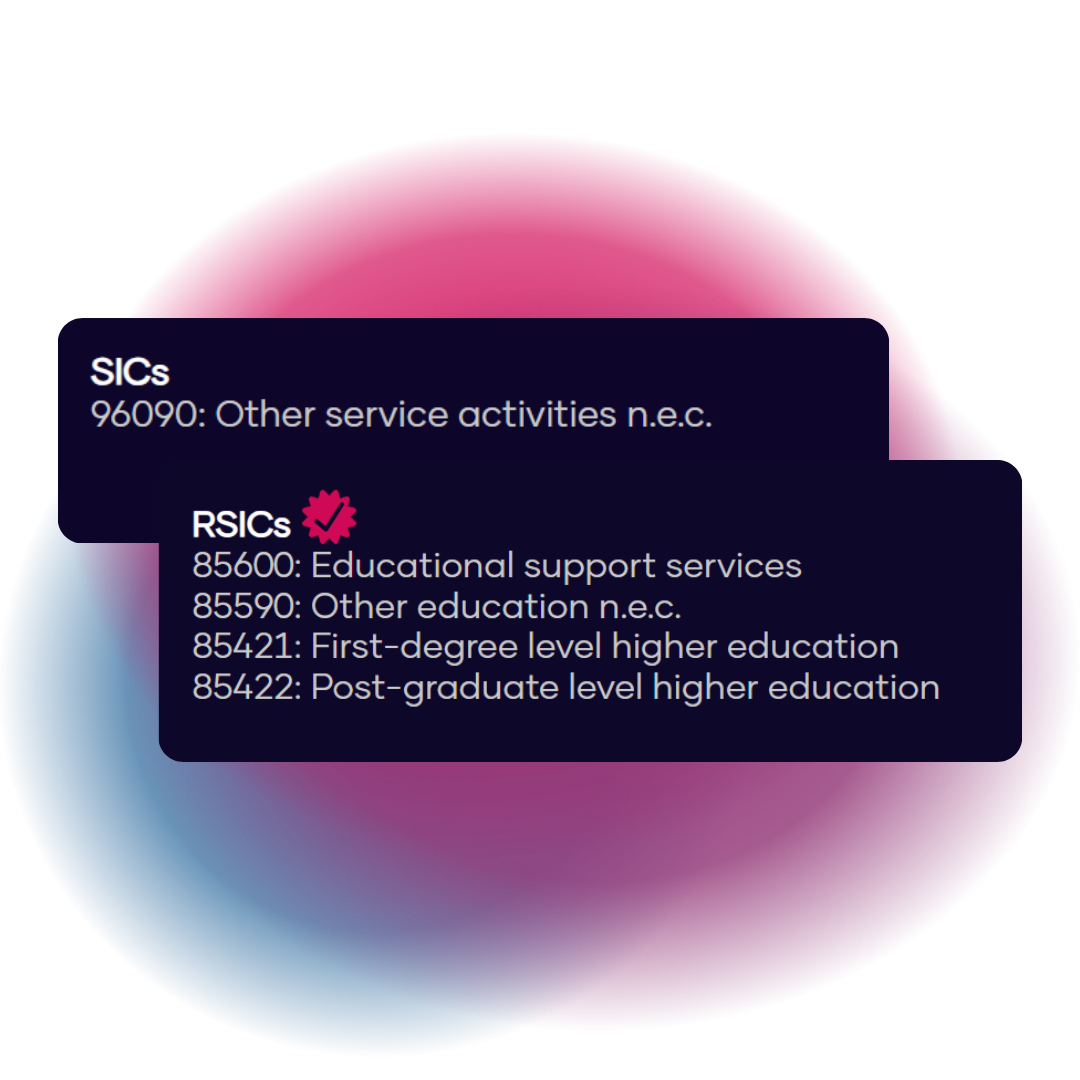
Trusted by leading government departments, consultants & financial institutions
What are Real-Time SIC Codes (RSICs)?
If your business relies on outdated SIC codes, you’re missing out on vital insights.
Real-Time SIC Codes (RSICs) offer a smarter way to classify companies, using AI to assign SIC codes where they are missing, correct SIC codes where they are wrong, and add SIC codes where they are vague or insufficient.
Why use RSICs?
SIC codes underpin major investment, policymaking, and business decisions, but they are frequently wrong, vague, or insufficient. RSICs solve these common issues, making SIC codes fit for purpose.
Adds detail
Traditional SIC codes often rely on vague, catch-all classifications like “other,” making it difficult to truly understand what companies do. RSICs correct this by providing precise details on actual business activities.
Fills gaps
For older institutions and businesses, like chartered companies, SIC codes are often unavailable. RSICs fills these gaps, providing accurate data where none previously existed.
Fixes errors
SIC codes are often self-selected by business owners, leading to errors. RSICs automatically corrects these, ensuring businesses are accurately classified when incorrect or convenient codes are chosen.
Better understand what businesses do
1.4 million UK companies have vague classifications like “other services”.
This lack of precision creates barriers for businesses that need clear insights into company and sector activities. RSICs remove these barriers by delivering accurate data on companies and their operations, giving you a deeper understanding of what they really do.
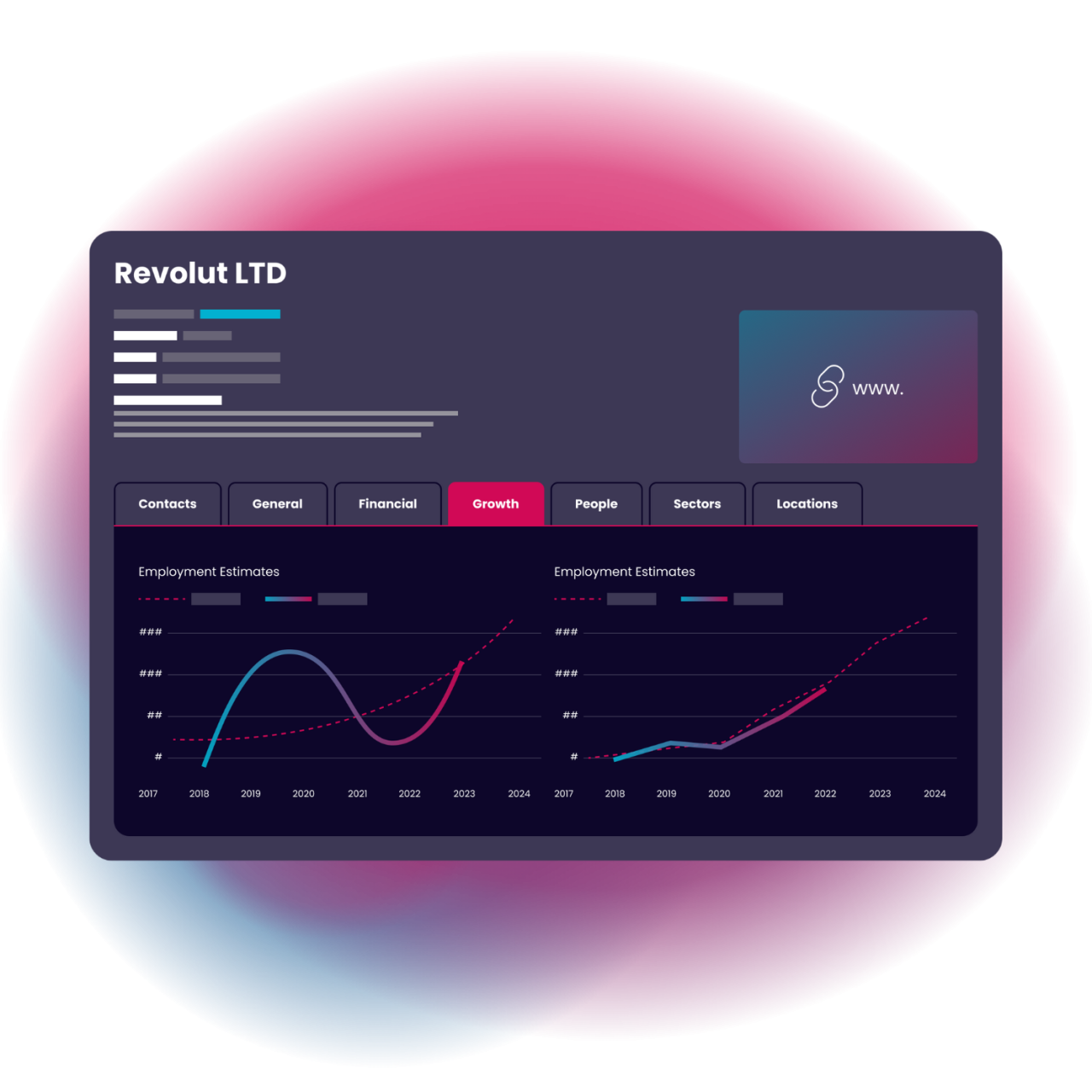
Save time & money
Imagine what you could achieve if SIC codes were corrected overnight.
RSICs dramatically improve the accuracy of SIC codes, eliminating the need for manual checks and processes. This means fewer staff hours spent on data cleansing, significantly lower operational costs, and faster, more efficient workflows.
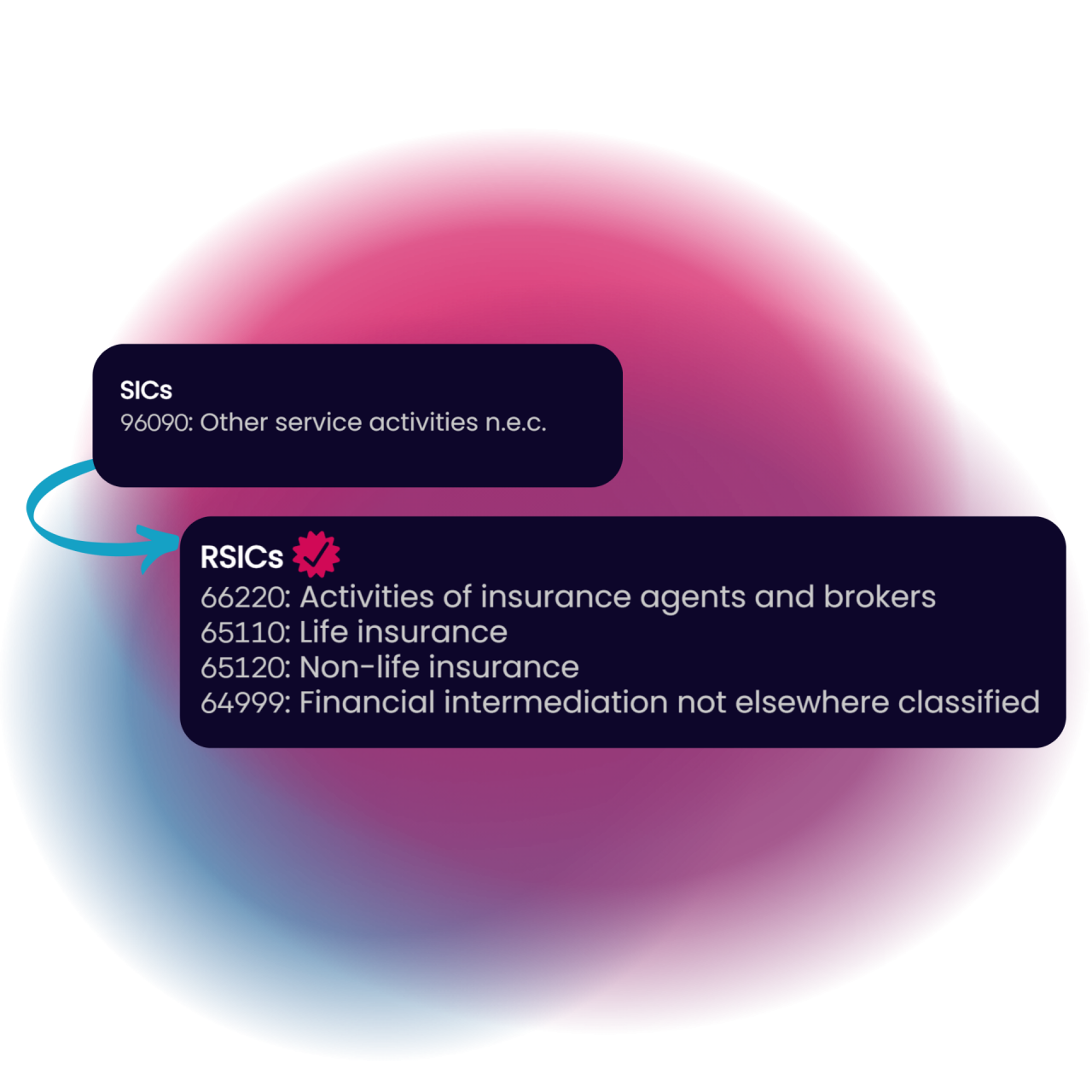
Streamline risk management & compliance
Accurate business classifications are essential for financial institutions managing risk and adhering to compliance requirements like KYC and AML. RSICs ensure your data is always up-to-date, helping you manage sector-specific risks more effectively and stay compliant with evolving regulations.
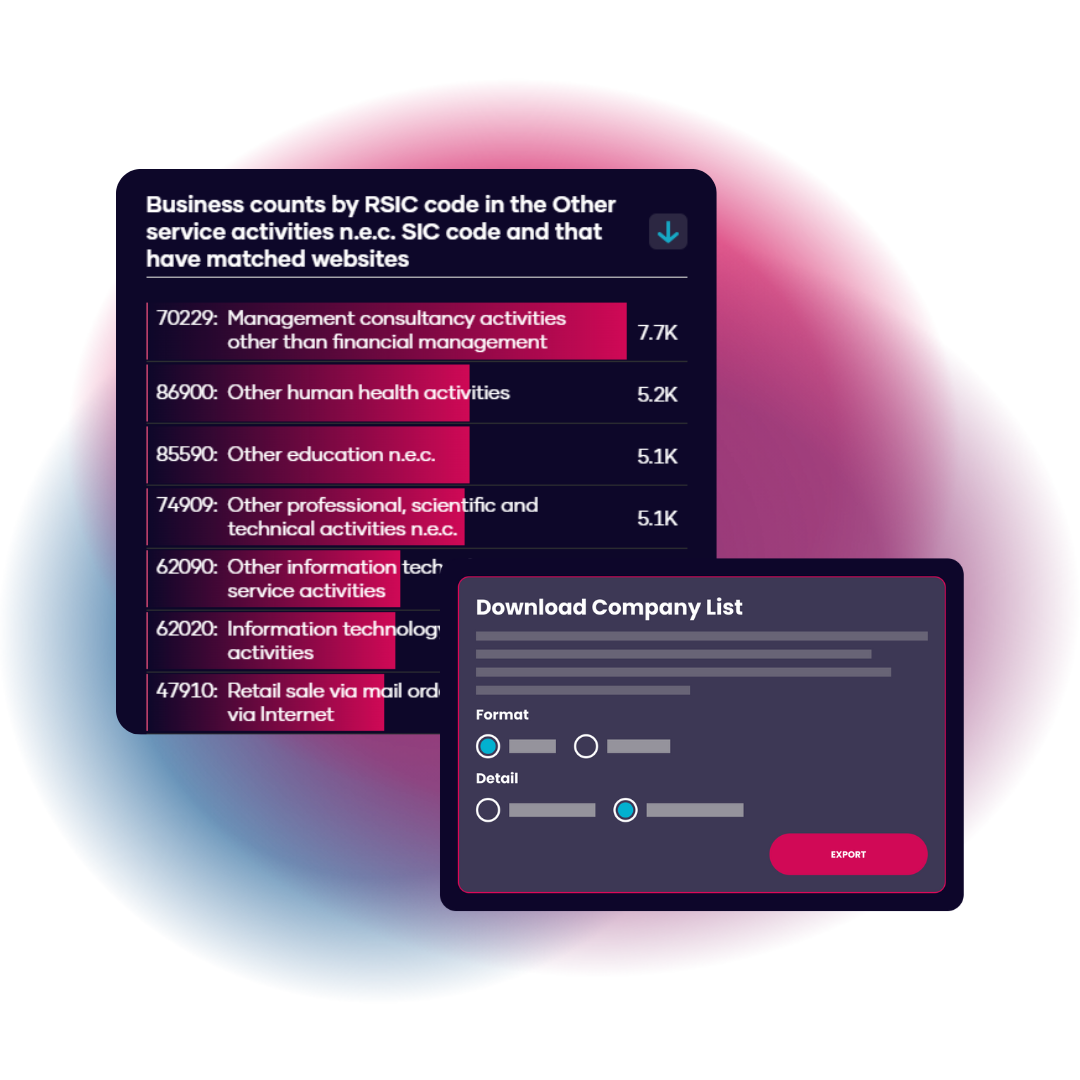
Who can benefit from RSICs?
Banks & Insurers
RSICs automate business classification for risk assessment, loan approvals, and compliance, helping banks and insurers streamline processes, reduce risk, and improve decision-making.
Accountancy Firms
RSICs enable accountancy firms to better understand their customer base and provide insights for their clients. Run efficient risk assessments with ease.
Public Sector
RSICs provide accurate business classifications to support economic policy development and investment decisions. By better classifying companies, RSICs help government create targeted policies and improve economic planning.
The truth about SIC Codes
By now, you know traditional SIC codes are outdated and inaccurate. But the full scale of the issue might surprise you:
- 1.4 million UK companies are labelled with vague “other” SIC codes.
- 42% of UK employees work for companies with unclear or incorrect classifications.
- RSICs fix this – replacing over 400,000 “other” codes with accurate ones.
- 75% of affected employees now work at companies with meaningful, correct classifications with RSICs
Want the full breakdown? Read out technical blog.
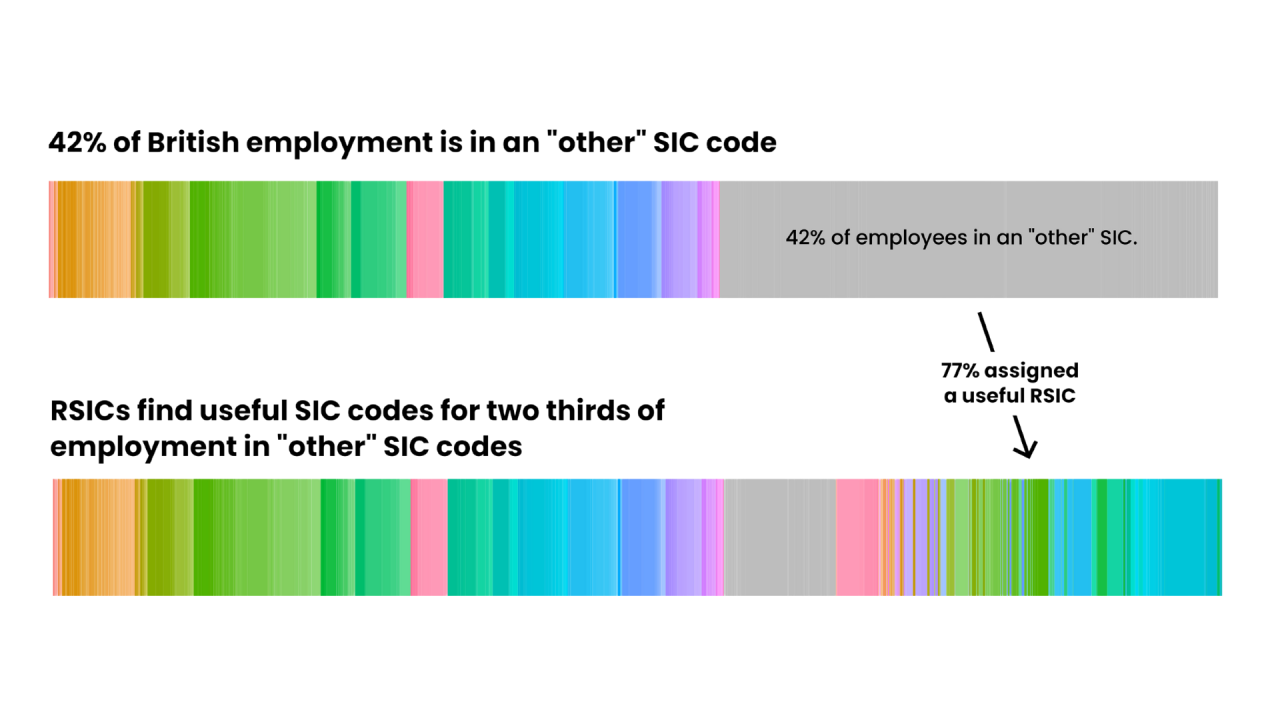
Frequently asked questions
- How do I access RSICs?
-
Real-Time SIC codes (RSICs) are available as either an upgrade in our Industry Engine platform or via our API, depending on your use case.
- Can I try the data?
-
To try RSICs for yourself we recommend signing up for a free trial. As part of your 7-day free trial you will be able to explore our Industry Engine platform, and see our RSICs data in action.
For specific questions or projects, please feel free to reach out via our contact us form.
- What are RSICs and how do they differ from traditional SIC codes?
-
Real-Time SIC Codes (RSICs) use AI to update business classifications. Unlike traditional SIC codes, which can be outdated and inaccurate, RSICs ensure businesses are correctly classified based on real-time information, providing more accurate and relevant data for those using the SIC Code system.
Our AI analyses companies and assigns them the most relevant classifications from the current SIC Code system, avoiding issues with catch-all ‘other classifications’ that don’t accurately describe a companies activities.
- What’s the difference between RSICs and RTICs?
-
Real-Time SIC Codes (RSICs) are The Data City’s solution to the limitations of traditional SIC codes, using AI to assign the most relevant SIC code based on real-time data. While this improves accuracy, the SIC code system itself, last updated in 2007, remains outdated and doesn’t account for modern industries.
RTICs (Real-Time Industrial Classifications) go beyond SIC codes, offering a modern approach to tracking emerging sectors like AI, Data, and Quantum Technology.
RTICs use website data, machine learning, and expert input to classify companies based on their actual activities. With RTICs, you gain access to over 400 emerging sectors in real-time, from AI and AgriTech to Advanced Manufacturing and Robotics, providing deeper insights and more relevant classifications.
- How much do RSICs cost?
-
RSICs are available as an add-on to any Industry Engine licence, with pricing starting at £2,000 for single seats. For API access or bespoke projects, please get in touch.
You can find out more about our packages on our pricing page.
- How does The Data City compare to other similar products on the market?
-
The Data City isn’t just another data provider; we’re redefining how industries are classified and understood.
Our mission is to build the new standard industrial classification system, liberating our clients from outdated SIC codes and enabling them to discover and invest in industries addressing the world’s key challenges and opportunities.
Unlike others who rely on outdated data, limited databases, and buzzwords, we offer a real-time view of companies in the UK and beyond.
Our Real-Time Industrial Classifications (RTICs) set us apart. Developed in partnership with the UK government and leading academics, our platform features over 400 bespoke RTICs, providing unparalleled insight into emerging sectors.
With the ability to build custom classifications using our machine learning technology, our innovative approach to developing alongside our customers and partners, and our comprehensive dataset, you’ve only just scratched the surface of how we compare to ‘similar’ products on the market.
Liberate your insights
Realise the potential of cutting-edge industry data. Sign up for a free trial and break free from outdated classifications with real-time information.





